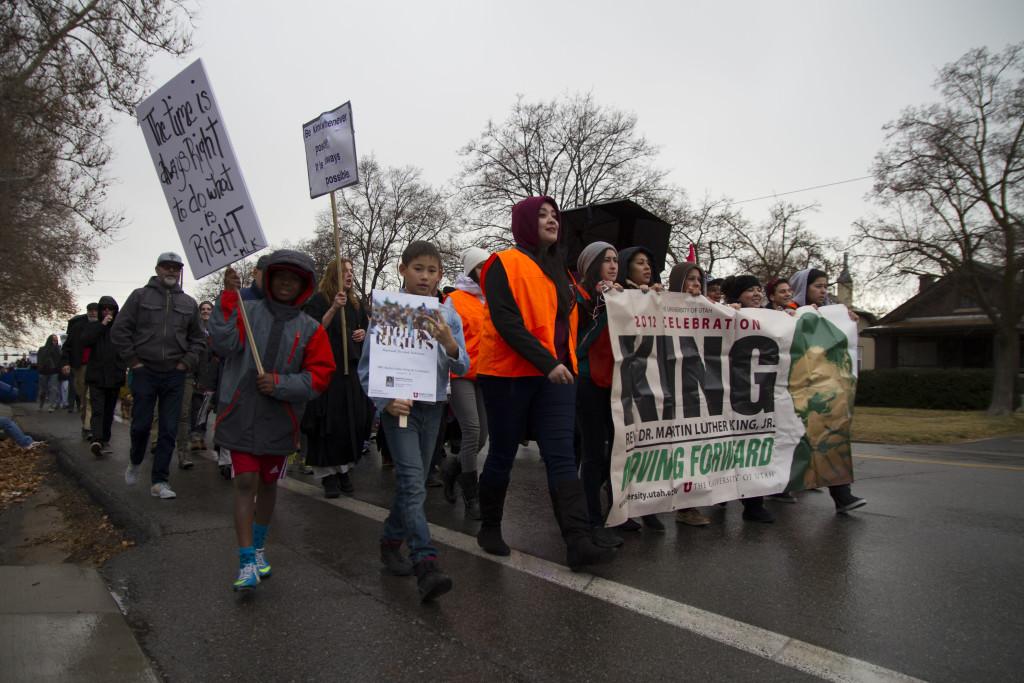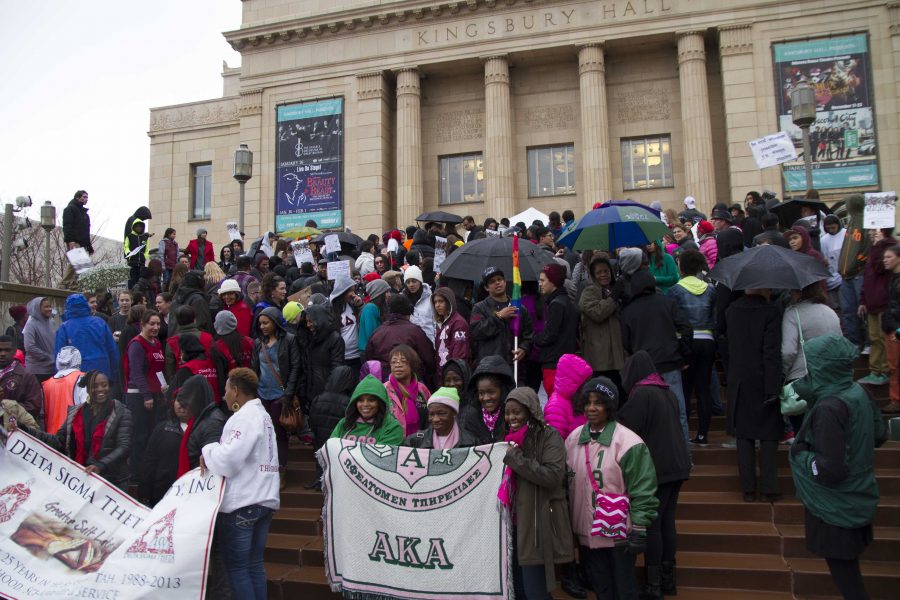Protests Need Collective Will and Effort to be Successful
by Andrea Kay Palmer
From the global support offered to France and Beirut after terrorist attacks, to the Mizzou football team forcing the resignation of their school’s president after negligence occurred in addressing marginalized students’ experience on campus, the examples of power of connection and the collective’s demand for justice can be seen as the heart of what makes a successful revolution.
Individuals and leaders of movements are emblems of the struggle, but the power lies within the collective. A single snowball may incite an avalanche, but the force and momentum of the avalanche is what does the most damage. The sole Mizzou student who went on a hunger strike to protest discrimination on campus was not effective when he was standing alone, but once the movement gained momentum and the football team became involved, a shift happened. While accolades should be given to the student on a hunger strike for his self-sacrifice and contributions, credit should be awarded to the whole for effecting change. Power never lies with an individual but with the many who stand alongside him or her.
Human connectedness is fundamental in instituting awareness when a new paradigm of existence presents itself. This concept became evident after tragedy struck Paris and Beirut last week, when communities around the world came together to express solidarity and sympathy to those affected. Because suffering is a universal human experience, it allows us to connect to each other and come together for a cause. The outpouring of empathy and compassion empowers us to support each other and mobilizes us to stand together and become a united force when we defend our beliefs and plead for non-violence.
David may have beaten Goliath, but revolutions are won by and for the people. While revolutions need courageous “Davids” to be the spark that ignites the fire, the fire must be fueled and have outside factors to aid acceleration if it intends on destroying old paradigms that are no longer serving our higher collective purpose. Fighting for the collective is noble. “Leaders” of revolutions are a single face designated to represent the efforts of many.
Therefore, the power of the individual can often be overrepresented, but this misrepresentation does not discredit the service done by that individual; instead, recognizing that the singular act of service is just a moving part of the broader contextual meaning of the movement. Individual effort is necessary, but movements take the will and efforts of many. An individual mourning the deaths in the terrorist attacks in Paris and Beirut would not receive national attention, just as one student protesting discrimination acts at his college never had a national voice. But together, our cries are loud and our voices are many, and we have the ability to be the change we desire.
Individual Leaders the Determining Factor in Successful Protests
by Dalton Edwards
Individuals can make a difference. I could also argue just the opposite — only in collective acts of protest can change occur. Last week, for example, University of Missouri President Tim Wolfe stepped down after the school’s football team staged a sit-in strike, protesting the latency with which Wolfe treated heightened racial tensions on campus. The football strike is acknowledged by many news organizations as the “tipping point” at which economic and social pressures were too high for the Mizzou administration and Wolfe to ignore. Before the football team began their strike, however, student and teacher protests rocked the university, and Jonathan Butler, a Mizzou graduate student, began an indefinite hunger strike which he would end only when Wolfe stepped down.

Needless to say, this was far from being caused by one individual. Butler, in a tweet following Wolfe’s resignation, thanked the many supporters of his campaign, saying, “This was NOT a singular effort this was a COMMUNITY effort. There is power in solidarity.”
In fact, I’m not here to suggest that only individuals make a difference. Only that they do, can and have made differences. Butler is an excellent example. A report by CNN said something I profoundly agree with: “It’s hard to imagine … [the football team] having had the same impact had [Butler] not chosen to start a hunger strike, demanding the removal of Missouri University System President Tim Wolfe.” Certainly, the Missouri football strike did not happen in a vacuum and, by my personal estimation, would not have become the face of the movement had Butler not elevated the protest via hunger strike and first established the University of Missouri as an exemplifier of the race relations debate.
I think back to other individuals who sparked national debates about race relations. Individuals who brought the inhumanity of racial discrimination to the forefront of America’s social consciousness. Individuals like Trayvon Martin, Freddie Gray, Eric Garner, Sandra Bland, and, just miles from the University of Missouri, Michael Brown Jr., in Ferguson. These people, collective in their plights, were nonetheless individuals in the final moments of their untimely, unjustified and severely troubling deaths. Active citizens around the country — even in Salt Lake City — came together to protest the injustice of police brutality and racial discrimination. Much like at the University of Missouri, public outcry came at the expense of a few intimately involved individuals. Butler was far more important to the movement than he’d ever give himself credit for.
Yet what do we consider an effective protest? Is it one person, dead or dying for a cause, or a whole group of people — a football team, even — that makes a social movement viable and impactful? Posed another way, are protests more effective in the individuality of Tiananmen Square, Rosa Parks or Martin Luther King Jr., or are they more effective in the collective fight against the People’s Republic of China and civil rights violations? I’d tentatively reply that the former necessarily precedes the latter, and that without an individual’s action, demonstration or example, protests would likely carry little symbolic weight.


